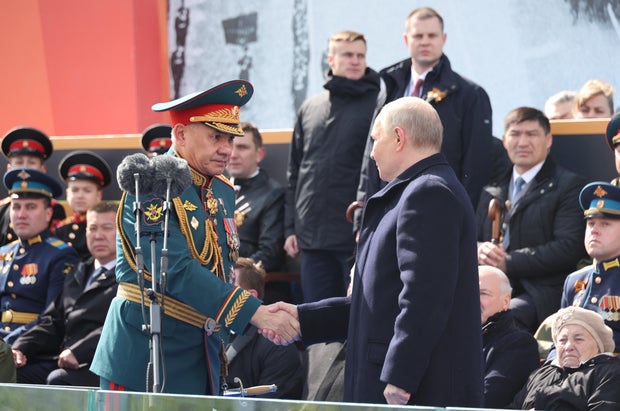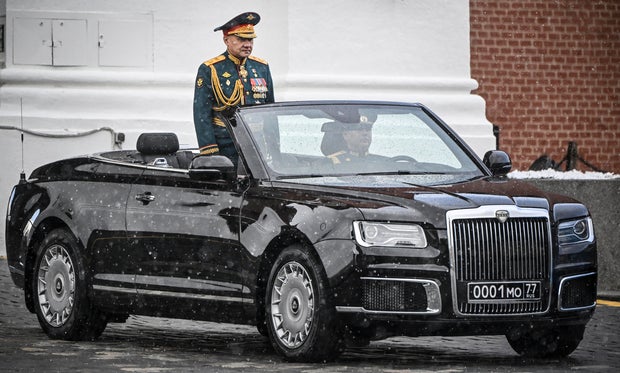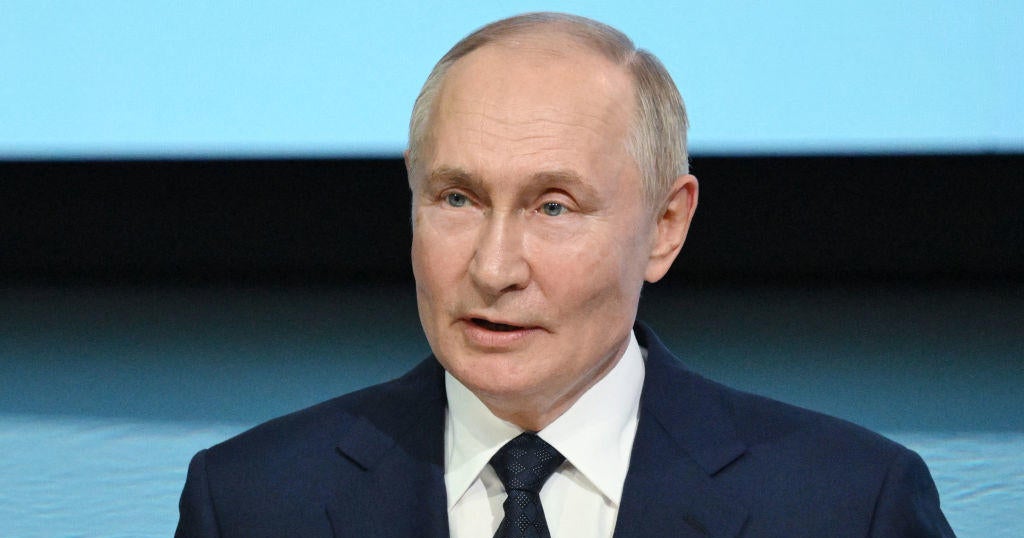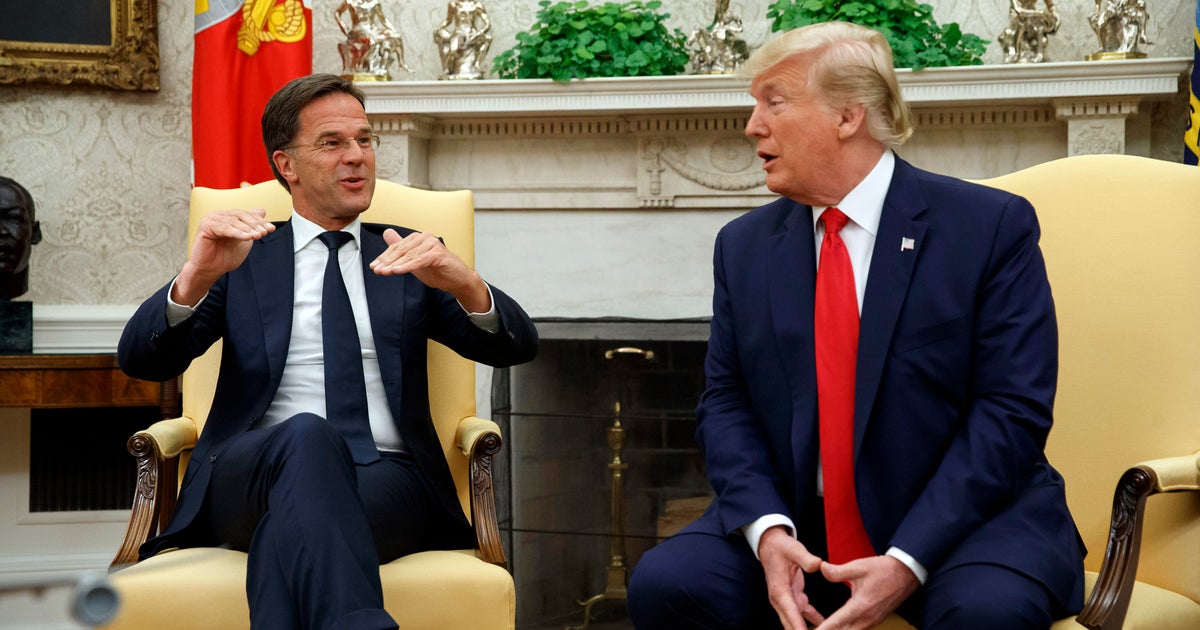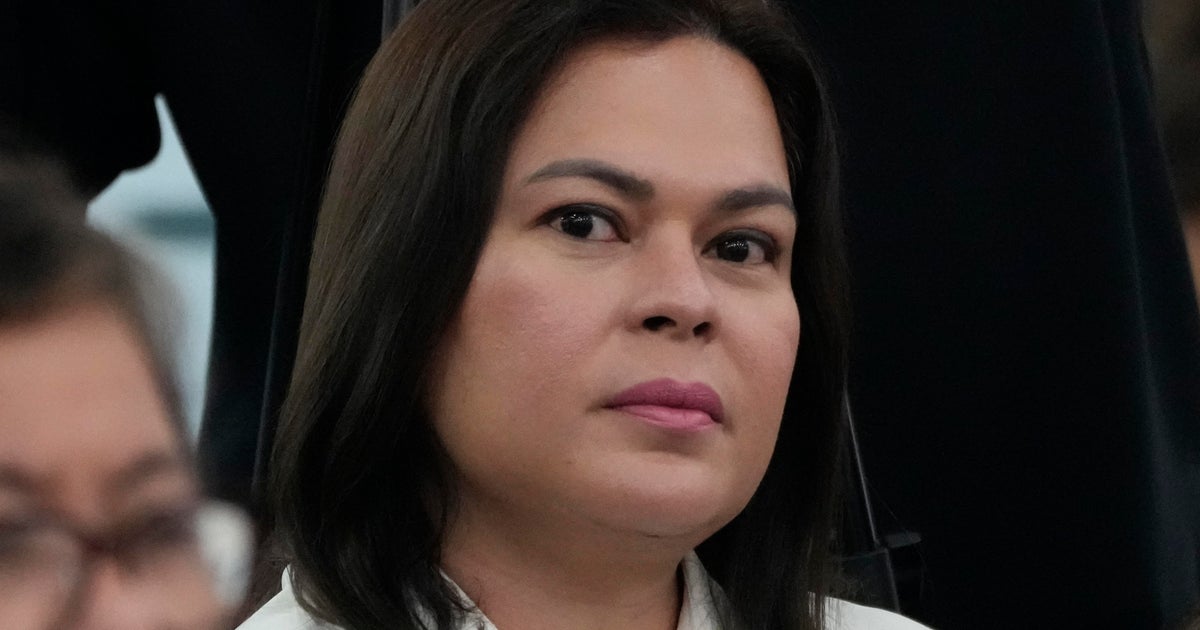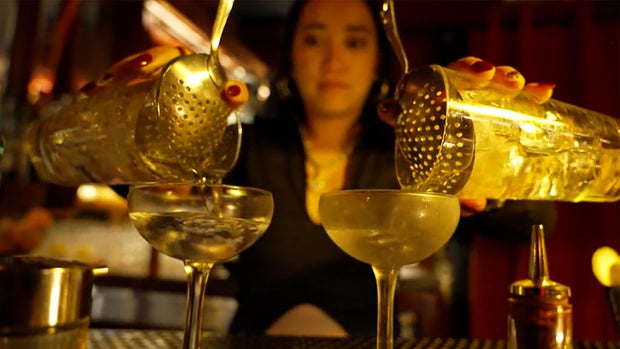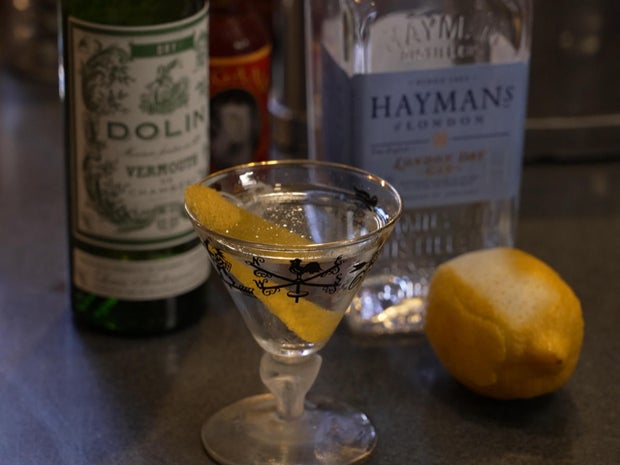CBS News
Putin replaces Sergei Shoigu as defense minister, appoints him as secretary of Russia’s national security council

Russia’s President Vladimir Putin on Sunday proposed replacing Sergei Shoigu as defense minister on Sunday and appointed him as secretary of Russia’s national security council.
The appointment comes after Putin proposed appointing Andrei Belousov as the country’s defense minister in place of Shoigu, who has served in the post for years. The reshuffle comes as Putin starts his fifth presidential term and as the war in Ukraine drags on for the third year
In line with Russian law, the entire Russian Cabinet resigned on Tuesday following Putin’s glittering inauguration in the Kremlin.
Andrei Kartapolov, head of the State Duma Defense Committee, told Russian state news agency RIA Novosti, “Since the president made such a decision, and the president, I want to remind you, is the Supreme Commander in chief. This means that today, exactly such a person is needed as the minister of defense.”
The announcement came as thousands more civilians have fled Russia’s renewed ground offensive in Ukraine’s northeast that has targeted towns and villages with a barrage of artillery and mortar shelling, officials said Sunday.
MIKHAIL KLIMENTYEV/POOL/AFP via Getty Images
The intense battles have forced at least one Ukrainian unit to withdraw in the Kharkiv region, capitulating more land to Russian forces across less defended settlements in the so-called contested gray zone along the Russian border.
By Sunday afternoon, the town of Vovchansk, among the largest in the northeast with a prewar population of 17,000, emerged as a focal point in the battle.
Volodymyr Tymoshko, the head of the Kharkiv regional police, said that Russian forces were on the outskirts of the town and approaching from three directions.
“Infantry fighting is already taking place,” he said.
A Russian tank was spotted along a major road leading to the town, Tymoshko said, illustrating Moscow’s confidence to deploy heavy weaponry.
An Associated Press team, positioned in a nearby village, saw plumes of smoke rising from the town as Russian forces hurled shells. Evacuation teams worked nonstop throughout the day to take residents, most of whom were older, out of harm’s way.
At least 4,000 civilians have fled the Kharkiv region since Friday, when Moscow’s forces launched the operation, Gov. Oleh Syniehubov said in a social media statement. Heavy fighting raged Sunday along the northeast front line, where Russian forces attacked 27 settlements in the past 24 hours, he said.
Analysts say the Russian push is designed to exploit ammunition shortages before promised Western supplies can reach the front line.
Ukrainian soldiers said that the Kremlin is using the usual Russian tactic of launching a disproportionate amount of fire and infantry assaults to exhaust their troops and firepower. By intensifying battles in what was previously a static patch of the front line, Russian forces threaten to pin down Ukrainian forces in the northeast, while carrying out intense battles farther south where Moscow is also gaining ground.
It comes after Russia stepped up attacks in March targeting energy infrastructure and settlements, which analysts predicted were a concerted effort to shape conditions for an offensive.
Meanwhile, a 10-story apartment building partially collapsed in the Russian city of Belgorod, near the border, killing at least eight people and injuring 20 others. Russian authorities said that the building collapsed following Ukrainian shelling. Ukraine hasn’t commented on the incident.
ALEXANDER NEMENOV/AFP via Getty Images
Ukrainian President Volodymyr Zelenskyy said that halting Russia’s offensive in the northeast was a priority, and that Kyiv’s troops were continuing counteroffensive operations in seven villages around the Kharkiv region.
“Disrupting the Russian offensive intentions is our No. 1 task now. Whether we succeed in that task depends on every soldier, every sergeant, every officer,” Zelenskyy said.
The Russian Defense Ministry said Sunday that its forces had captured four villages on the border along Ukraine’s Kharkiv region, in addition to five villages reported to have been seized on Saturday. These areas were likely poorly fortified because of the dynamic fighting and constant heavy shelling, easing a Russian advance.
Ukraine’s leadership hasn’t confirmed Moscow’s gains. But Tymoshko said that Strilecha, Pylna and Borsivika were under Russian occupation, and it was from their direction they were bringing in infantry to stage attacks in other embattled villages of Hlyboke and Lukiantsi.
Russian tactics in Vovchansk mirror those used in the battles for Bakhmut and Avdiivka in the Donetsk region, he said, in which heavy aerial attacks were accompanied by droves of infantry assaults.
“Now the Russians are simply wiping it (Vovchansk) off the face of the earth and advancing with the scorched earth method. That is, they first scorch a specific area and then the infantry comes in, and they always advance in this way,” he said.
A Ukrainian unit said that they had been forced to retreat in some areas and that Russian forces had captured at least one more village late Saturday.
In a video Saturday evening, the Hostri Kartuzy unit, part of the special forces’ detachment of Ukraine’s national guard, said that they were fighting for control of the village of Hlyboke.
“Today, during heavy fighting, our defenders were forced to withdraw from a few more of their positions, and today, another settlement has come completely under Russian control. As of 20:00, fighting for the village of Hlyboke is ongoing,” the fighters said in the clip.
The Institute for the Study of War said Saturday that it believed claims that Moscow had captured Strilecha, Pylna, Pletenivka and Borsivika were accurate, and that geolocated footage also appeared to show that Russian forces have seized Morokhovets and Oliinykove. The Washington-based think tank described the recent Russian gains as “tactically significant.”
In the war’s early days, Russia made a botched attempt to quickly storm Kharkiv, which is Ukraine’s second-largest city, but retreated from its outskirts after about a month. In the fall of 2022, seven months later, Ukraine’s army pushed them out of Kharkiv. The bold counterattack helped persuade Western countries that Ukraine could defeat Russia on the battlefield and merited military support.
CBS News
What makes a martini a martini?

Watch CBS News
Be the first to know
Get browser notifications for breaking news, live events, and exclusive reporting.
CBS News
What makes a martini a martini?
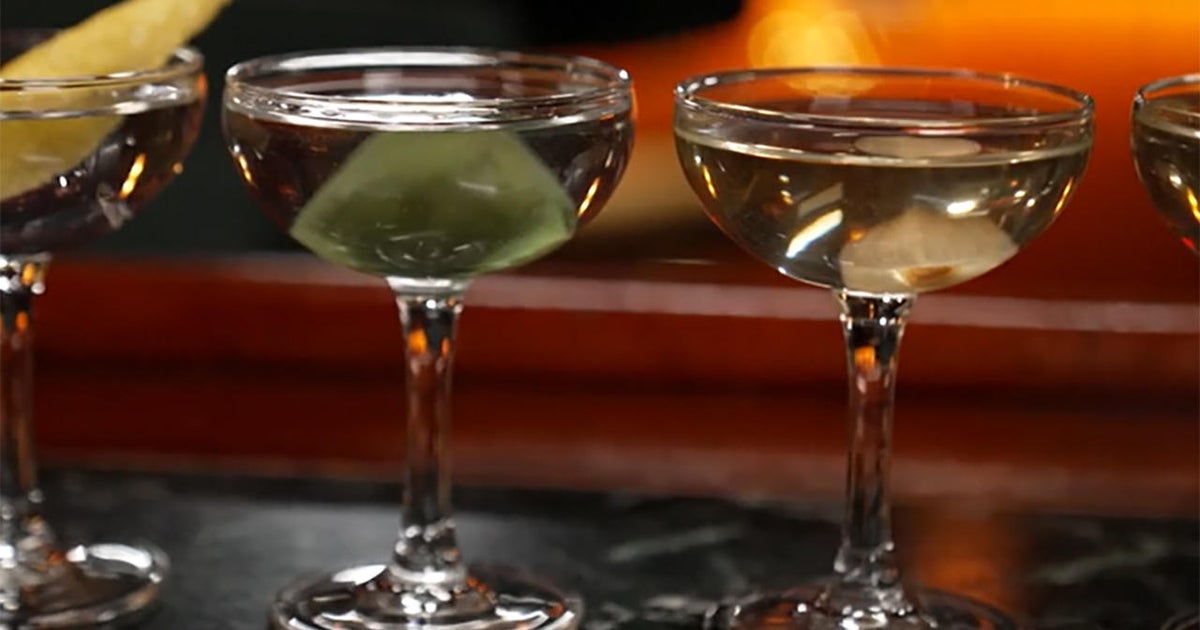
Nowadays, what makes a martini a martini? Robert Simonson, who wrote a book about the martini, said, “It’s funny: it’s strict and loose at the same time.”
Ten Speed Press
Everyone seems to have an opinion about the cocktail: “Ingredients, proportions, garnishes – it’s all subject to debate,” Simonson said. “I’m a purist. I would think it needs to be gin and vermouth. But I’m willing to bend and say, ‘Okay, vodka and vermouth as well.’ [However,] if there’s no vermouth in there, I don’t know how you can call it a cocktail.”
Simonson says the martini was probably named after a vermouth company. It was invented in America in the 1870s or ’80s when bartenders mixed gin with vermouth, a fortified wine made with herbs and spices. “It’s a very big player in cocktail history,” he said.
In the early 20th century, the “very-dry” martini became very-popular: Ice cold gin or vodka, garnished with a lemon twist, or an olive, or an onion, but only a little vermouth (or maybe not even a little).
Samantha Casuga, the head bartender at Temple Bar in New York City, says the reason why many people might not want vermouth in their martini is because, for years, vermouth was stored improperly. “It should be in the fridge,” she said.
CBS News
Casuga’s classic martini is two parts gin, one part vermouth, with a twist of lemon. She suggests that you probably shouldn’t order it the way James Bond does – shaken, not stirred. Casuga says she’s always stirring, but some people like the show behind the bar when a bartender shakes their cocktail. “Definitely, people love a good shake,” she said.
People also love to have a martini made just the way they want it. But Casuga understands why they might be so specific: “To have your own preferences, not only listened to and then executed, is, like, that’s luxury itself.”
Writer Robert Simonson says that a martini can also add a little luxury to your Thanksgiving. “It actually makes very good sense for Thanksgiving,” he said. “It will whet your appetite for the meal to come.
“There are very few American inventions more American than the martini. So, an American holiday, American drink.”
CBS News
For more info:
Story produced by Mary Raffalli. Editor: Remington Korper.
“Sunday Morning” 2024 “Food Issue” recipe index
Delicious menu suggestions from top chefs, cookbook authors, food writers, restaurateurs, and the editors of Food & Wine magazine.
CBS News
NATURE: Turkeys in South Dakota

Watch CBS News
Be the first to know
Get browser notifications for breaking news, live events, and exclusive reporting.


